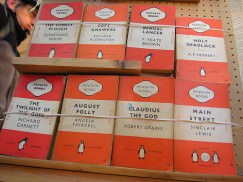Justice: Putting a Price Tag on Life
Today, companies and governments often use Jeremy Benthams utilitarian logic under the name of cost-benefit analysis. Professor Michael Sandel presents contemporary cases in which cost-benefit analysis was used to put a dollar value on human life. The cases give rise to objections on the utilitarian logic of seeking the greatest good for the greatest number. Should we always give more weight to the happiness of a majority that is cruel or ignoble? Is it possible to sum up and compare all values using a common measure like money?
Introducing J.S. Mill, a utilitarian philosopher attempts to defend utilitarianism against the objections raised by critics of the doctrine. Mill argues that seeking the greatest good for the greatest number is compatible with protecting individual rights. His idea is that the higher pleasure is always preferred by a well-informed majority. Sandel tests this theory by playing video clips from three very different forms of entertainment: Shakespeares Hamlet, the reality show Fear Factor, and The Simpsons.
Students debate which experience provides the higher pleasure, and whether Mills defense of utilitarianism is successful.
ARB Team
Arbitrage Magazine
Business News with BITE.
Liked this post? Why not buy the ARB team a beer? Just click an ad or donate below (thank you!)
Liked this article? Hated it? Comment below and share your opinions with other ARB readers!

















Share the post "Justice: Putting a Price Tag on Life"